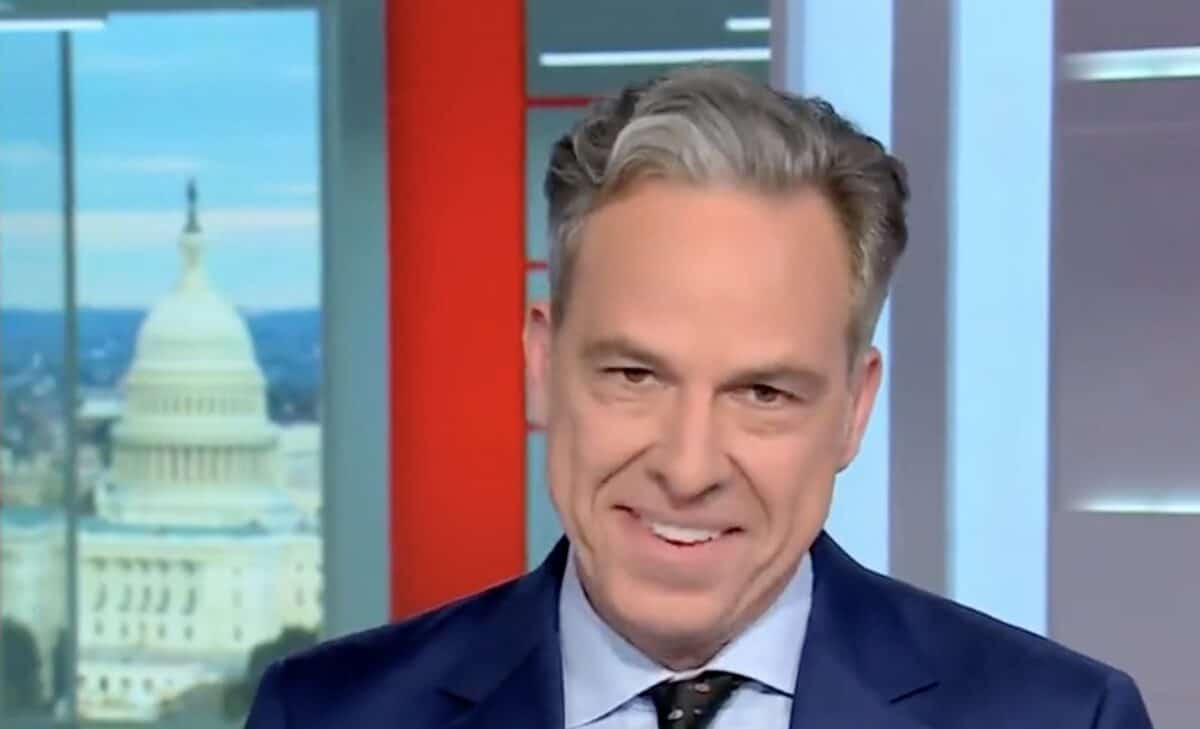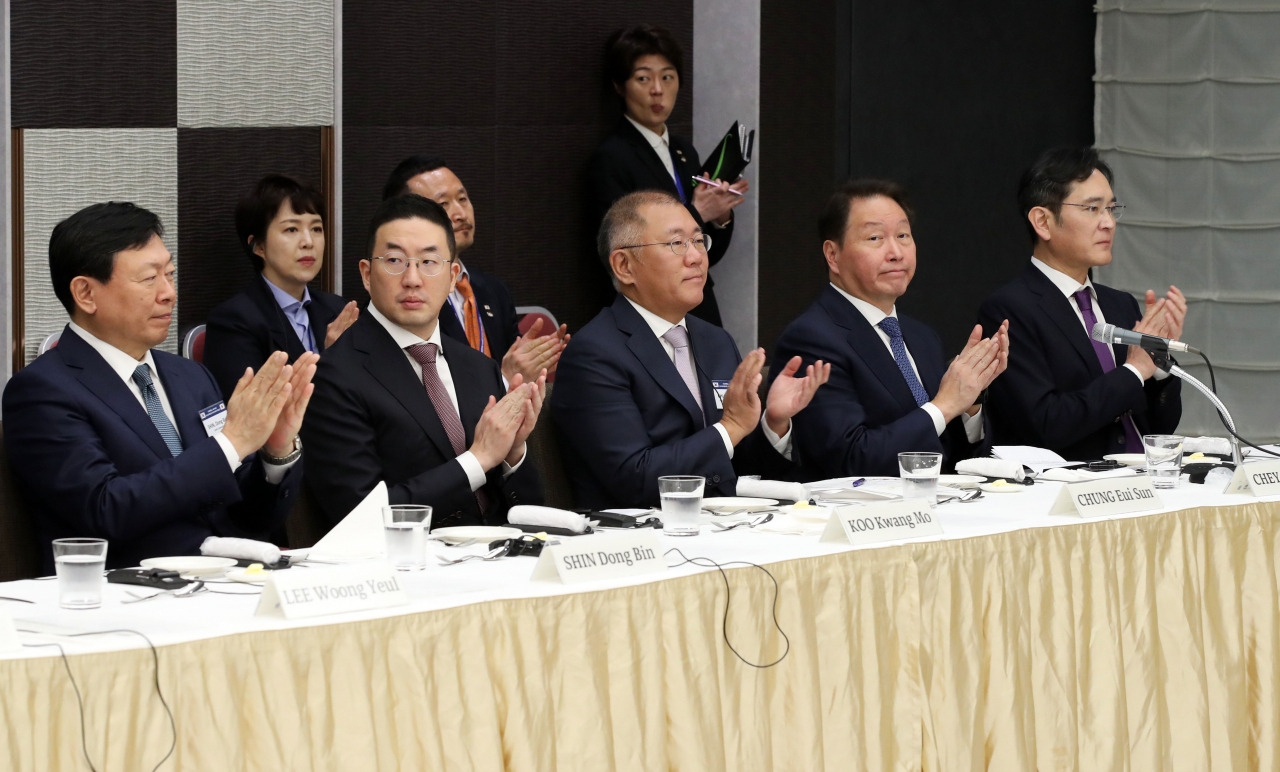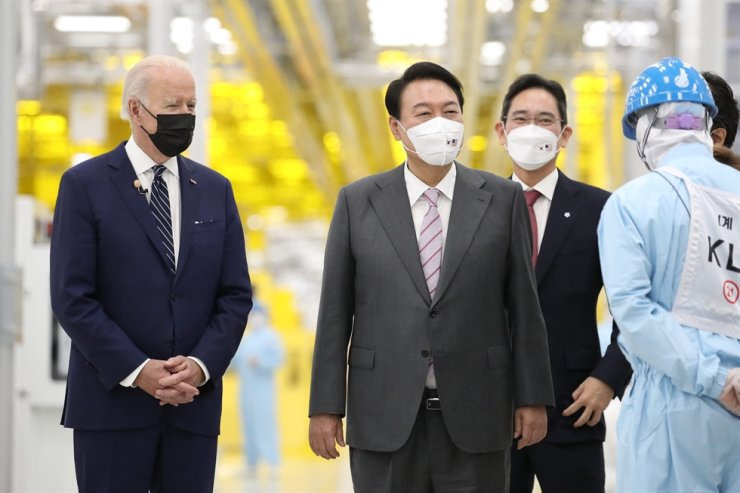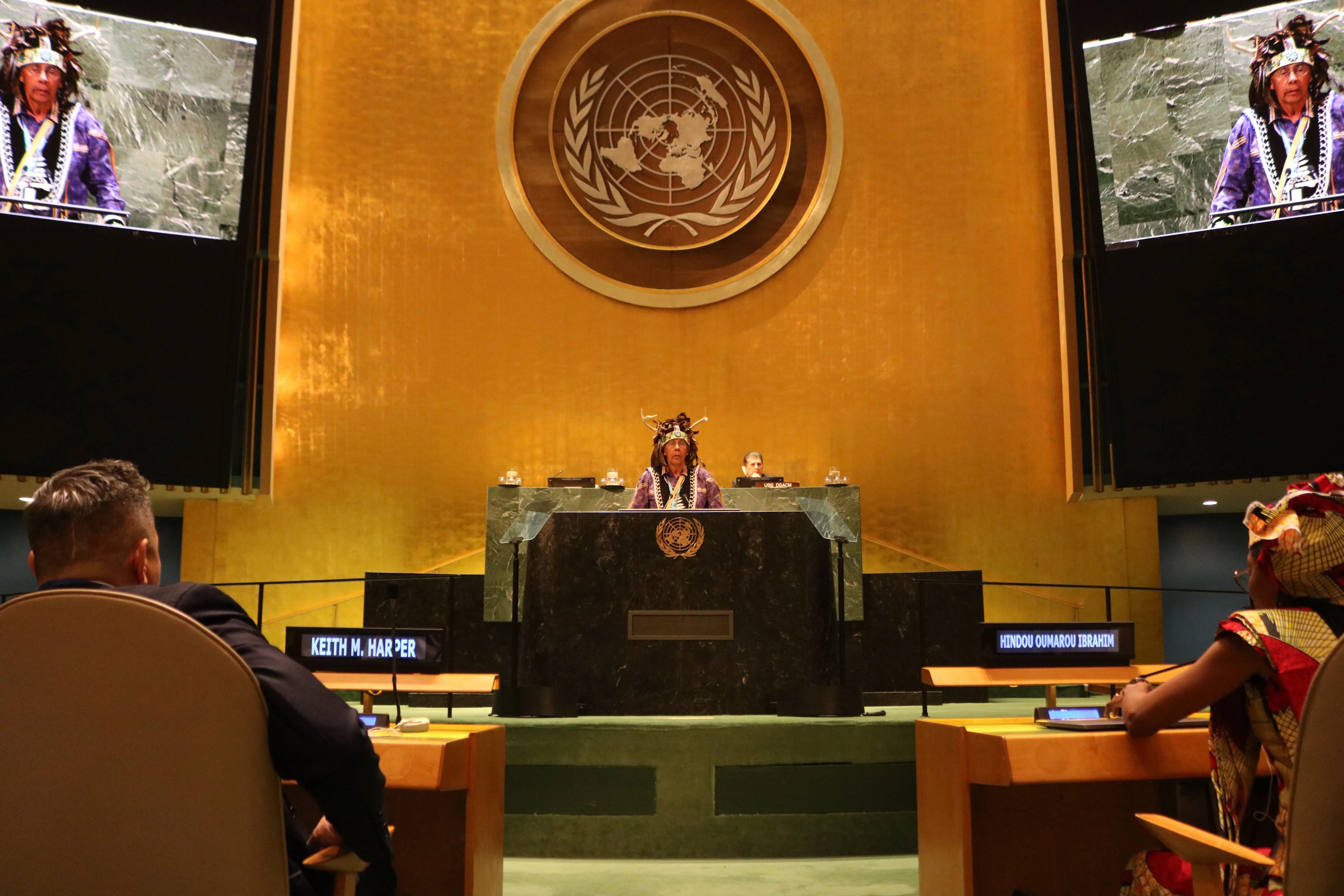The Saudis had also invested in the private equity firm that sold off the tech companies that power Democratic campaigns.
Akela Lacy
THE INTERCEPT
April 23 2023
THE GOVERNMENT OF Saudi Arabia is an investor in the private company that owns a virtual monopoly on software that powers Democratic candidates — including management of the Democratic National Committee’s all-important voter list.
Sanabil Investments, the company that manages Saudi Arabia’s sovereign wealth fund, recently published its first list of investments in venture capital, buyout firms, and startups. The list includes two private equity firms involved two years ago in the sale and acquisition of EveryAction and NGP VAN, the companies that make up the Democratic Party’s campaign tech apparatus.
“Saudi Arabia’s investments are definitely strategic.”
“Saudi Arabia’s investments are definitely strategic,” said Paul Rose, an associate dean at the Ohio State University’s law school, who has done research on sovereign funds in Gulf states. “This disclosure is interesting because I look at it and I think, ‘Well, why would you disclose all this?’ The Saudis are really quite shrewd about signaling to not only people in their own country but people abroad what their priorities are.”
Rose added, “Investment for them is in part a brand-building exercise.”
Sanabil runs the Public Investment Fund, the official name for the Saudi government’s sovereign wealth fund. The fund is one of the world’s largest, with $620 billion in assets.
In addition to investments in Apax Partners, which acquired NGP VAN and EveryAction in August 2021, Sanabil is also invested in Insight Partners, another venture capital and private equity firm that invested in EveryAction in 2018 and sold parts of the company to Apax in 2021. (Another company called Vista Equity Partners that sold assets to Apax as part of the 2021 acquisition is also listed as a Saudi partner.)
“Limited partners in Apax funds are passive investors with no role in the management of portfolio companies,” said a spokesperson for Apax. “While they are entitled to receive information relating to the performance of their investments at fund level, they do not have access to sensitive portfolio company information.”
Other Saudi investments disclosed recently include Blackstone, Apollo Global Management, and Andreessen Horowitz.
Federal regulations are designed to stop sovereign wealth funds from interfering in domestic politics. If a particular investment includes a national security risk, federal regulators can force the transaction to be undone through the Committee on Foreign Investment in the United States under the Department of the Treasury. Most of that risk is typically mitigated because sovereign wealth funds tend to be invested in companies through intermediaries like Apax or Insight Partners.

A Black Woman Said She Was Afraid of the Police. A Nearly All-White Disciplinary Panel Said We Don’t Believe You.
Rachel M. Cohen

GROOMERS
Georgia National Guard Will Use Phone Location Tracking to Recruit High School Children
Sam Biddle
Investment in a compny that deals with data related to voting and politics could be of potential concern to the Committee on Foreign Investment, even if the investor has no real influence over relevant data, Rose said. The committee could require the fund to use a mitigation agreement that limits interactions with the portfolio company. Rose added that the committee is quiet about its work and generally responsive to potential threats. (A spokesperson for the Treasury Department declined to comment.)
It’s not clear why Sanabil published the list of its partner venture capital and buyout firms. Any fund or investment vehicle that invests $100 million or more in publicly traded U.S. companies has to disclose those investments quarterly to the Securities and Exchange Commission. Sanabil is not required to disclose several of the investments it made because some were made in funds or companies that aren’t publicly traded.
Sanabil did not disclose the amount of money invested in each firm. (The company did not respond to a request for comment.)
THE DISCLOSURE OF Saudi Arabia’s investments comes less than three months after Bonterra, the new merged company created by the Apax acquisition, instituted layoffs at EveryAction and NGP VAN. At least 140 people were impacted by the layoffs, which Bonterra CEO Mark Layden attributed to the pursuit of “long-term, efficient growth.” (Bonterra did not respond to a request for comment.)
The Sanabil investment doesn’t mean the Saudi government has an interest in the functions of the companies.
Instead, said progressive strategist Gabe Tobias, the disclosure is a further indication that the fate of EveryAction and NGP VAN is not a priority for their owners.
“They just don’t care. It’s so, so important to the Democratic Party and to progressives organizations and it’s owned by a thing that absolutely doesn’t care about them or even know they exist,” Tobias said. “The priority that Apax puts on all the pieces of those holdings means they’re gonna continue to downgrade the services that NGP provides to political campaigns. Unless they say differently, which they never have.”
April 23 2023
THE GOVERNMENT OF Saudi Arabia is an investor in the private company that owns a virtual monopoly on software that powers Democratic candidates — including management of the Democratic National Committee’s all-important voter list.
Sanabil Investments, the company that manages Saudi Arabia’s sovereign wealth fund, recently published its first list of investments in venture capital, buyout firms, and startups. The list includes two private equity firms involved two years ago in the sale and acquisition of EveryAction and NGP VAN, the companies that make up the Democratic Party’s campaign tech apparatus.
“Saudi Arabia’s investments are definitely strategic.”
“Saudi Arabia’s investments are definitely strategic,” said Paul Rose, an associate dean at the Ohio State University’s law school, who has done research on sovereign funds in Gulf states. “This disclosure is interesting because I look at it and I think, ‘Well, why would you disclose all this?’ The Saudis are really quite shrewd about signaling to not only people in their own country but people abroad what their priorities are.”
Rose added, “Investment for them is in part a brand-building exercise.”
Sanabil runs the Public Investment Fund, the official name for the Saudi government’s sovereign wealth fund. The fund is one of the world’s largest, with $620 billion in assets.
In addition to investments in Apax Partners, which acquired NGP VAN and EveryAction in August 2021, Sanabil is also invested in Insight Partners, another venture capital and private equity firm that invested in EveryAction in 2018 and sold parts of the company to Apax in 2021. (Another company called Vista Equity Partners that sold assets to Apax as part of the 2021 acquisition is also listed as a Saudi partner.)
“Limited partners in Apax funds are passive investors with no role in the management of portfolio companies,” said a spokesperson for Apax. “While they are entitled to receive information relating to the performance of their investments at fund level, they do not have access to sensitive portfolio company information.”
Other Saudi investments disclosed recently include Blackstone, Apollo Global Management, and Andreessen Horowitz.
Federal regulations are designed to stop sovereign wealth funds from interfering in domestic politics. If a particular investment includes a national security risk, federal regulators can force the transaction to be undone through the Committee on Foreign Investment in the United States under the Department of the Treasury. Most of that risk is typically mitigated because sovereign wealth funds tend to be invested in companies through intermediaries like Apax or Insight Partners.

A Black Woman Said She Was Afraid of the Police. A Nearly All-White Disciplinary Panel Said We Don’t Believe You.
Rachel M. Cohen

GROOMERS
Georgia National Guard Will Use Phone Location Tracking to Recruit High School Children
Sam Biddle
Investment in a compny that deals with data related to voting and politics could be of potential concern to the Committee on Foreign Investment, even if the investor has no real influence over relevant data, Rose said. The committee could require the fund to use a mitigation agreement that limits interactions with the portfolio company. Rose added that the committee is quiet about its work and generally responsive to potential threats. (A spokesperson for the Treasury Department declined to comment.)
It’s not clear why Sanabil published the list of its partner venture capital and buyout firms. Any fund or investment vehicle that invests $100 million or more in publicly traded U.S. companies has to disclose those investments quarterly to the Securities and Exchange Commission. Sanabil is not required to disclose several of the investments it made because some were made in funds or companies that aren’t publicly traded.
Sanabil did not disclose the amount of money invested in each firm. (The company did not respond to a request for comment.)
THE DISCLOSURE OF Saudi Arabia’s investments comes less than three months after Bonterra, the new merged company created by the Apax acquisition, instituted layoffs at EveryAction and NGP VAN. At least 140 people were impacted by the layoffs, which Bonterra CEO Mark Layden attributed to the pursuit of “long-term, efficient growth.” (Bonterra did not respond to a request for comment.)
The Sanabil investment doesn’t mean the Saudi government has an interest in the functions of the companies.
Instead, said progressive strategist Gabe Tobias, the disclosure is a further indication that the fate of EveryAction and NGP VAN is not a priority for their owners.
“They just don’t care. It’s so, so important to the Democratic Party and to progressives organizations and it’s owned by a thing that absolutely doesn’t care about them or even know they exist,” Tobias said. “The priority that Apax puts on all the pieces of those holdings means they’re gonna continue to downgrade the services that NGP provides to political campaigns. Unless they say differently, which they never have.”

Related
Inside the Slow Implosion of the Democratic Party’s Vaunted Campaign Tech Firm
In 2016, Saudi Arabia announced its Vision 2030 plan to transition its economy away from dependence on oil and gas and toward tech investment. Sanabil’s disclosure indicates more spending on that front, with partners including Bird and Oura. The fund invests 50 percent of its assets in venture capital firms like Insight Partners, 30 percent in private equity firms like Apax, and 20 percent in a liquid portfolio.
It’s typical for national sovereign wealth funds to invest in foreign companies as part of their strategy for growth. Apax has also sold stakes to investors from sovereign wealth funds in China, Singapore, and Australia.
Sanabil’s list of partners resembles something more like a venture capital press release than an investment disclosure by a sovereign wealth fund, Rose said.
“This is sort of what a VC firm would do,” he said. They’re trying to signal something about who they are as a brand, who they are as investors. It’s hard to know what to make of it.” The disclosure could be meant to signal their ability as savvy investors to pick good assets, he added. “But beyond that, I don’t know. Who knows what else they could be trying to signal?”












